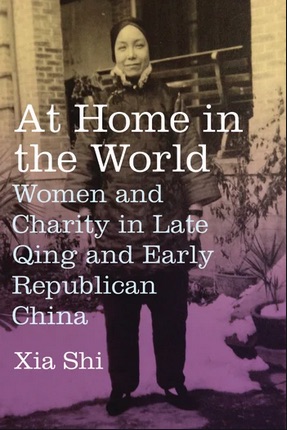During the years spanning the late Qing dynasty and the early Republican era, the status of Chinese women changed in both subtle and decisive ways. As domestic seclusion ceased to be a sign of virtue, new opportunities emerged for a variety of women. Much scholarly attention has been given to the rise of the modern, independent “new women” during this period. However, far less is known about the stories of married nonprofessional women without modern educations and their public activities.
In At Home in the World, Xia Shi unearths the history of how these women moved out of their sequestered domestic life; engaged in charitable, philanthropic, and religious activities; and repositioned themselves as effective public actors in urban Chinese society. Investigating the lives of individual women as well as organizations such as the YWCA and the Daoyuan, she shows how her protagonists built on the past rather than repudiating it, drawing on broader networks of family, marriage, and friendship and reconfiguring existing beliefs into essential components of modern Chinese gender roles. The book stresses the collective forms of agency these women exercised in their endeavors, highlighting the significance of charitable and philanthropic work as political, social, and civic engagement. Shi also analyzes how men—alive, dead, or absent—both empowered and constrained women’s public ventures. She offers a new perspective on how the public, private, and domestic realms were being remade and rethought in early twentieth-century China, in particular, how the women navigated these developing spheres. At Home in the World sheds new light on how women exerted their influence beyond the home and expands the field of Chinese women’s history.
- Table of Contents
- Acknowledgments
- Introduction
- Part I. Elite Women and Charity
- 1. Beyond a Personal Virtue
- 2. Being Female Philanthropists
- Part II. The YWCA in China and “Women in the Home”
- 3. Reaching Out to Women in the Home
- 4. Women Interacting with the YWCA
- Part III. Women in the School of the Way
- 5. Redefining Confucian Gender Doctrines
- 6. Women, Superstition, and the Reorientation Toward Charity
- Epilogue
- Notes
- Glossary
- Works Cited
- Index

